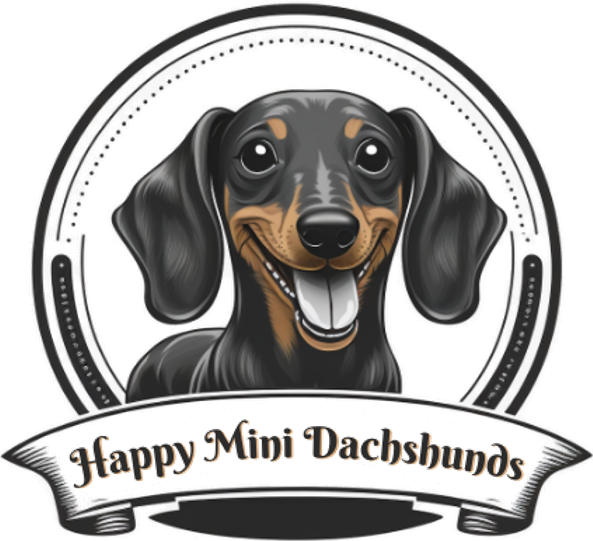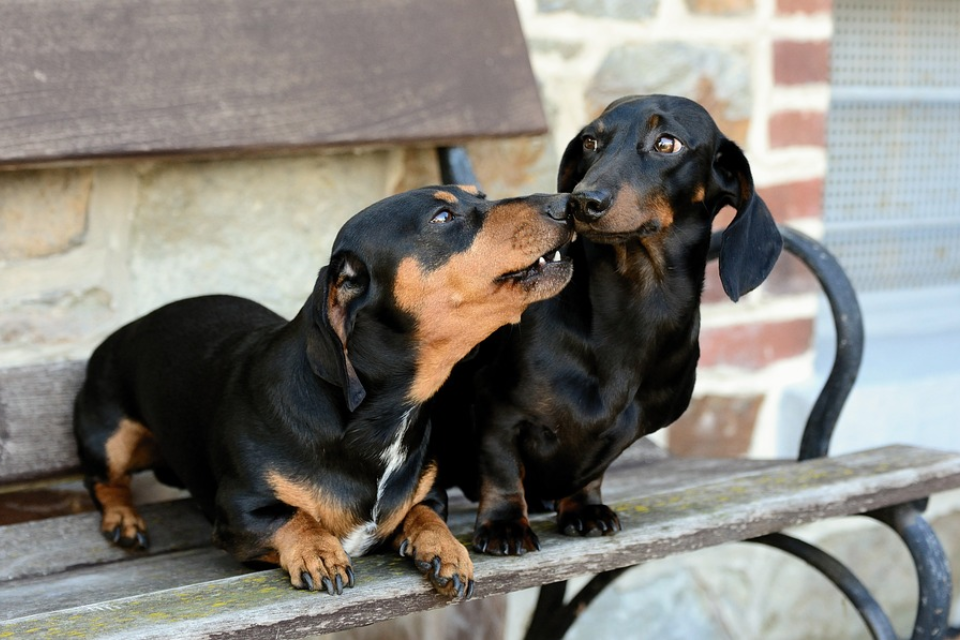Hey there, fellow dog lovers! If you’re reading this, chances are you’re the proud owner of a mini dachshund or considering getting one. Mini dachshunds are adorable little pups known for their long bodies and floppy ears, and they make great companions for families and individuals alike. However, as with any pet, it’s important to understand their growth patterns and needs in order to ensure they’re healthy and happy.
In this article, we’re going to delve into the topic of how fast mini dachshunds grow. We’ll cover the different stages of their growth, factors that can affect their growth rate, average growth rates, and how to monitor their growth. Let’s get started!
Key Takeaways:
- Mini dachshunds go through several stages of growth, from neonatal to adolescent
- Genetics, diet, exercise, and health all play a role in a mini dachshund’s growth and development
- Regular check-ups with a veterinarian and tracking weight and measurements can help monitor growth for a healthy pet.
Mini dachshund growth stages
As with any breed of dog, mini dachshunds go through various stages of growth as they develop into adults. Here are the different stages and what to expect during each:
Neonatal stage (0-2 weeks)
The neonatal stage is the first two weeks of a mini dachshund’s life. During this time, the puppies are completely dependent on their mother for everything. They will spend most of their time sleeping and nursing, and their eyes and ears will be closed.
With my mini dachshund, I remember this being a very delicate time. It’s important to make sure the mother has a comfortable, warm environment and is getting enough food and water to produce enough milk for her pups.
Transitional stage (2-4 weeks)
The transitional stage lasts from two to four weeks old. This is when the puppies’ eyes and ears begin to open, and they start to become more aware of their surroundings. They will start to develop their senses and their coordination, and may start to explore a bit more.
During this stage, it’s important to make sure the puppies are getting enough socialization with their littermates and humans. I made sure to spend plenty of time with my mini dachshund puppies during this time, holding them and playing with them to help them get used to being handled by people.
Socialization stage (4-12 weeks)
The socialization stage lasts from four to twelve weeks old. This is a critical time for the puppies, as they start to learn how to interact with other dogs and humans. They will also start to learn basic obedience commands and house training.
During this time, it’s important to expose the puppies to as many different people, animals, and environments as possible to help them become well-rounded adults. I made sure to take my mini dachshund puppies out for walks and car rides, and introduced them to lots of different people and dogs.
Juvenile stage (3-6 months)
The juvenile stage lasts from three to six months old. This is when the puppies start to become more independent and assertive. They may test their boundaries and try to establish their place in the pack (i.e. your family).
During this time, it’s important to continue with training and socialization to help them become well-behaved adults. I found that my mini dachshund puppies became more energetic and playful during this stage, so it was important to make sure they were getting enough exercise and playtime.
Adolescent stage (6-12 months)
The adolescent stage lasts from six to twelve months old. This is when the puppies start to become adults, both physically and mentally. They may still have some puppy-like behavior, but will start to settle into their adult personality.
During this time, it’s important to continue with training and socialization, and to make sure they’re getting enough exercise and a healthy diet to support their growth.
Factors affecting mini dachshund growth
Several factors can affect a mini dachshund’s growth rate, including:
Genetics
Genetics plays a significant role in a mini dachshund’s growth and development. The size and weight of a mini dachshund’s parents can give an indication of how big the puppy will grow, but it’s not a guarantee. Some puppies may grow bigger or smaller than expected due to genetic variations.
With my mini dachshund, I made sure to research the parents’ sizes and health history before bringing her home to ensure she would have the best chance for a healthy and appropriate growth rate.
Diet and nutrition
Diet and nutrition also play a critical role in a mini dachshund’s growth and development. Feeding your puppy a balanced diet that provides the right amount of nutrients is crucial for proper growth.
It’s important to choose a high-quality dog food that is formulated specifically for puppies, as they have different nutritional needs than adult dogs. I made sure to read the labels carefully and choose a dog food that provided a balanced blend of protein, fat, and carbohydrates to support my mini dachshund’s growth.
Exercise and activity
Exercise and activity are important for a mini dachshund’s physical and mental health, but it’s also essential for proper growth and development. Regular exercise can help support muscle development and bone strength, and help to maintain a healthy weight.
With my mini dachshund, I made sure to take her on walks and play with her every day to keep her active and healthy.
Health and wellness
The overall health and wellness of a mini dachshund can also affect their growth rate. Issues such as infections, parasites, and illnesses can slow down growth or cause weight loss. Regular vet check-ups and vaccinations can help prevent these issues from occurring.
It’s important to be aware of any changes in your mini dachshund’s behavior or appearance, and to schedule regular check-ups with your vet to ensure your dog is healthy and growing at an appropriate rate.
Average mini dachshund growth rate
Height and weight
Mini dachshunds typically reach their full height by around 6 months of age, but they may continue to fill out and gain weight until they are 12-18 months old. At their full-grown size, mini dachshunds typically weigh between 11 and 16 pounds and stand around 5-7 inches tall at the shoulder.
Chart of growth rates by age
To get a better idea of how quickly your mini dachshund should be growing, it’s helpful to look at a growth chart. Here’s an example of what you might expect in terms of weight gain:
- 2 weeks: 8-10 oz
- 4 weeks: 12-14 oz
- 6 weeks: 1-2 lbs
- 8 weeks: 2-3 lbs
- 12 weeks: 4-5 lbs
- 16 weeks: 6-7 lbs
- 6 months: 7-9 lbs
- 12 months: 11-16 lbs
Remember that these are just general guidelines, and every puppy may grow at a slightly different rate depending on factors like genetics and nutrition.
Comparison to standard dachshunds
Standard dachshunds are larger than mini dachshunds and have a different growth rate. Standard dachshunds typically weigh between 16 and 32 pounds and stand around 8-9 inches tall at the shoulder. They typically reach their full height and weight by around 1 year of age.
It’s important to remember that every dog is unique, and growth rates can vary depending on a variety of factors. Regular vet check-ups can help you ensure that your mini dachshund is growing at a healthy and appropriate rate.
Monitoring mini dachshund growth
Importance of regular check-ups
Regular check-ups with your veterinarian are an important part of ensuring that your mini dachshund is growing and developing properly. Your vet can check your dog’s weight, measure their height, and perform a physical exam to ensure that they are healthy and on track with their growth.
During check-ups, your vet may also provide recommendations for diet and exercise to ensure that your dog is getting the nutrients and activity they need to grow strong and healthy.
Signs of abnormal growth
It’s important to keep an eye out for signs of abnormal growth in your mini dachshund. These can include:
- Significant weight gain or loss
- Changes in appetite
- Decreased energy levels
- Difficulty breathing or exercising
- Limping or difficulty walking
- Abnormalities in the size or shape of limbs or joints
If you notice any of these signs, it’s important to consult with your veterinarian right away. These could be indications of health problems or developmental issues that need to be addressed.
Tracking weight and measurements
In addition to regular check-ups with your veterinarian, tracking your mini dachshund’s weight and measurements at home can help you keep tabs on their growth and development. You can do this by using a scale to weigh your dog regularly and measuring their height at the shoulder.
Tracking this information over time can help you identify any patterns or changes in your dog’s growth rate, which can be useful information to share with your veterinarian.
It’s important to remember that every dog is unique, and growth rates can vary. If you have concerns about your mini dachshund’s growth or development, it’s always best to consult with your veterinarian to ensure that your dog is healthy and on track.
Conclusion
In conclusion, mini dachshunds go through several stages of growth and development, from the neonatal stage to the adolescent stage. Factors that can affect their growth include genetics, diet and nutrition, exercise and activity, and health and wellness.
It’s important to monitor your mini dachshund’s growth regularly, both through regular check-ups with your veterinarian and tracking their weight and measurements at home. Signs of abnormal growth should be addressed promptly to ensure your dog is healthy and on track with their development.
By understanding the average growth rate of mini dachshunds, you can get a better sense of how your dog is progressing through each growth stage. Remember that every dog is unique, and growth rates can vary, but consulting with your veterinarian can help you ensure that your dog is healthy and on track.
Proper growth and development are essential for the health and wellbeing of your mini dachshund. By providing a balanced diet, regular exercise, and plenty of love and attention, you can help ensure that your mini dachshund grows up healthy and happy.

